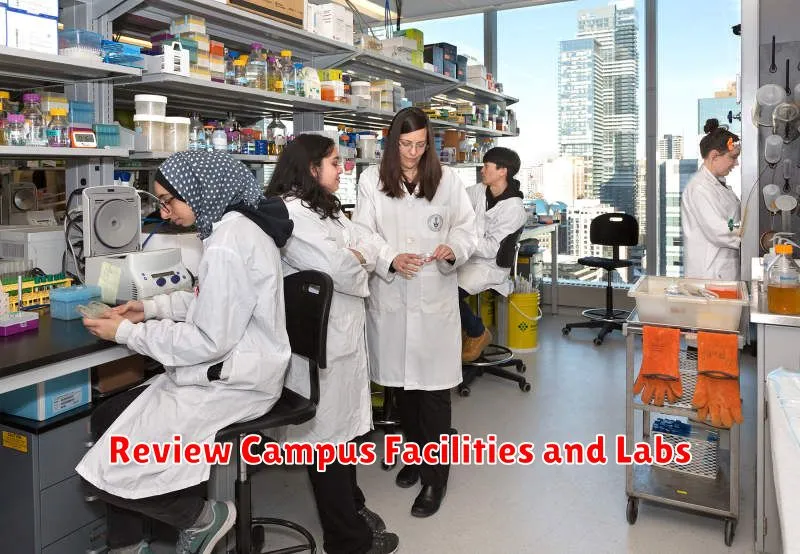Choosing the right university is a crucial step towards a successful future. Finding the best university for your major requires careful consideration of several factors. This article will guide you through the process of identifying the best universities for your chosen field of study, taking into account aspects such as program ranking, faculty expertise, research opportunities, and career services. Whether you are interested in computer science, engineering, business, or the humanities, understanding these key elements will empower you to make an informed decision about your higher education.
Navigating the complex landscape of university options can be daunting. This guide aims to simplify the process by providing practical advice and insights on how to find the best university for your major. We will delve into the ranking systems, explore different programs, and discuss the importance of aligning your academic goals with a university’s strengths. By the end of this article, you will be equipped with the knowledge and tools necessary to confidently select the best university that will help you thrive academically and professionally within your chosen major.
Clarify Your Academic Interests
Before diving into university rankings or program specifics, it’s crucial to identify your academic passions. Ask yourself: What subjects genuinely excite you? What topics do you find yourself researching in your free time? Honest self-reflection is the first step in finding the right academic fit.
Consider your strengths and weaknesses. Are you drawn to analytical thinking, creative problem-solving, or hands-on experimentation? Understanding your aptitudes will help you narrow down fields of study that align with your natural talents.
Explore different academic disciplines. Even if you have a general idea of your interests, researching various fields can expose you to new possibilities. Look into the coursework, research opportunities, and career paths associated with different majors.
Search by Subject Rankings

Subject rankings offer a focused perspective on university performance in specific academic disciplines. Understanding these rankings can be crucial when choosing a university based on your intended major. They evaluate programs based on factors like research output, faculty expertise, and academic resources.
Several organizations publish subject rankings, each with its own methodology. Be sure to research the methodology employed by each ranking organization to understand their evaluation criteria. This will provide a more nuanced understanding of the results. Some popular ranking sources include QS World University Rankings by Subject, Times Higher Education World University Rankings by Subject, and the ARWU ShanghaiRanking’s Global Ranking of Academic Subjects.
While these rankings offer valuable insight, it’s essential to consider them alongside other factors like university culture, location, and overall academic environment. Remember, the “best” university is subjective and depends on your individual needs and priorities.
Check Faculty and Research Output
A university’s faculty and their research output are key indicators of its academic strength in your chosen field. Strong faculty often translates into higher-quality instruction, more research opportunities, and a more vibrant academic community.
Investigate the faculty profiles on the department’s website. Look for professors with expertise in your specific area of interest. Consider their publications, grants received, and any awards or recognitions they have achieved. A department with actively publishing faculty signifies a commitment to cutting-edge research.
Look for opportunities for undergraduate involvement in research. This could be through independent study, assisting faculty with their projects, or dedicated undergraduate research programs. Participation in research can significantly enhance your educational experience and prepare you for future career or graduate study endeavors.
Explore Course Content and Curriculum
A crucial step in selecting the right university is thoroughly examining the course content and curriculum for your chosen major. Don’t just rely on the degree name.
Look for detailed course descriptions outlining topics covered, teaching methodologies (lectures, seminars, labs), and assessment methods (exams, projects, presentations). This will give you a clear picture of what to expect academically.
Compare curricula across different universities. Look for programs that offer specializations or concentrations within your major that align with your career goals. Consider the balance between theoretical knowledge and practical application.
Investigate opportunities for research, internships, or fieldwork integrated into the curriculum. These experiences provide valuable real-world skills and can significantly impact your future career prospects.
Look Into Alumni Success Stories
Investigating alumni success stories offers valuable insights into a university’s program effectiveness. Successful alumni often reflect the quality of education and resources provided by the institution.
Research alumni career paths. Look for graduates working in your desired field. Their achievements can indicate the program’s ability to prepare students for specific career goals.
Consider the diversity of alumni careers. A range of successful career outcomes can suggest a well-rounded education that prepares graduates for various opportunities.
Review Campus Facilities and Labs

State-of-the-art facilities and well-equipped labs are crucial for a quality education, especially in fields like engineering, science, and the arts. Thoroughly research what each prospective university offers.
Look for specialized equipment relevant to your major. For example, aspiring engineers should seek out universities with advanced robotics labs or 3D printing facilities. Future scientists might prioritize institutions with well-funded research labs and access to powerful computing resources.
Consider the accessibility of these resources. Are they readily available to undergraduates, or are they primarily reserved for graduate students and faculty? Inquire about booking procedures and typical wait times.
Visiting the campus is an excellent opportunity to tour the facilities firsthand. Observe the condition of the equipment and the overall learning environment. Talk to current students about their experiences using the labs and resources.
Visit or Take a Virtual Campus Tour
Once you’ve narrowed down your list of potential universities, a campus visit is highly recommended. Experiencing the campus environment firsthand can provide invaluable insights. Observe the overall atmosphere, the interactions between students and faculty, and the available facilities.
If an in-person visit isn’t feasible, many universities offer virtual tours. These digital experiences can give you a good sense of the campus layout, buildings, and key resources. Pay attention to the details presented in these tours, envisioning yourself as a student in that environment.

